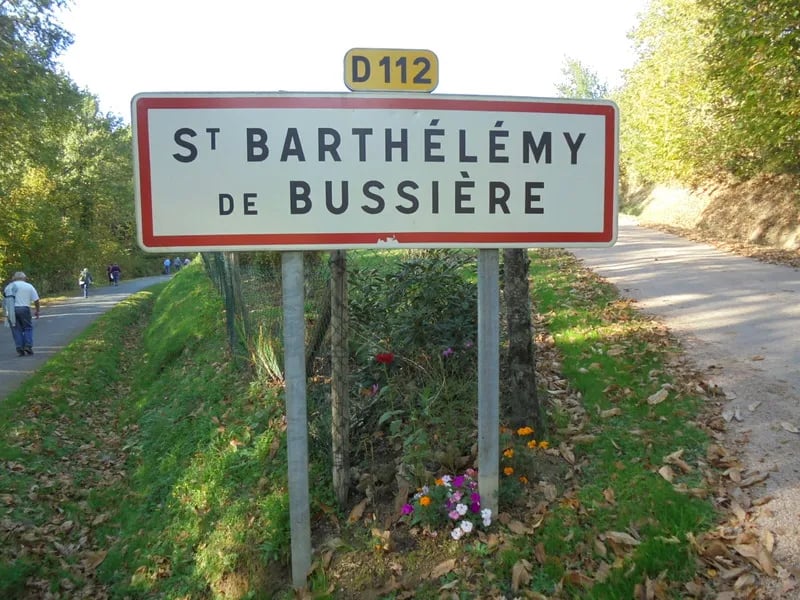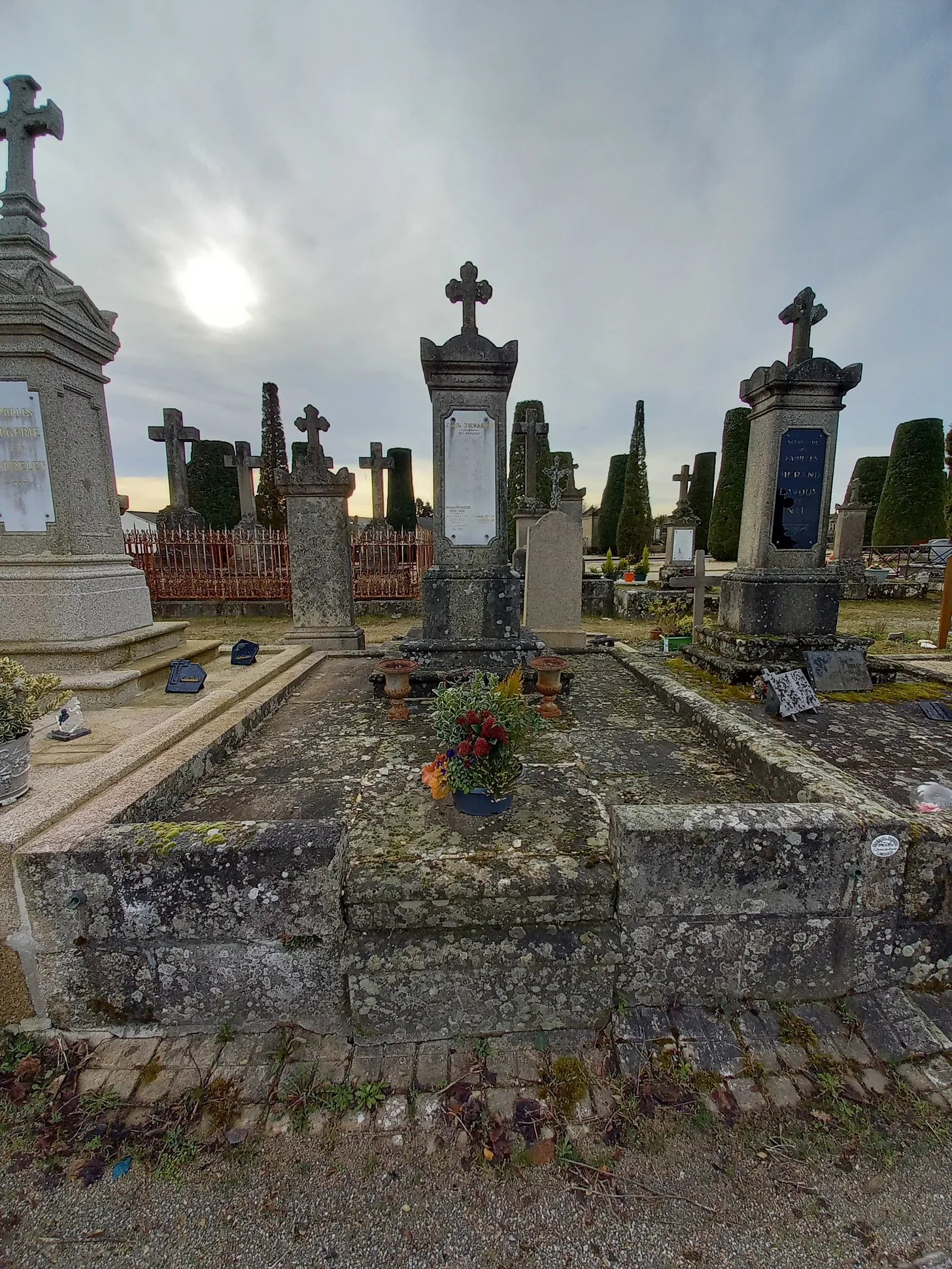Le Cimetière à Saint-Barthélemy-de-Bussière
And why it reminds me of Kentucky.
Yesterday went went exploring, looking for places we might live. One of the places where we stopped was the commune of Saint-Barthélemy-de-Bussière. The town itself was nice, although lacking services like restaurants, an epicerie, or even un tabac. What it did have though was a stunning graveyard, tucked behind the church.
We did not photograph the cimetière, (that is illegal in France) but its equivalent in Limoges looks much the same.
Rather than the rows of little headstones that make up an average Canadian graveyard, we found row upon row of massive granite crypts, each marked with a family name, and often with plaques bearing an image of the departed souls within.
It was striking that these graves are well visited, and well tended, with flowers - real or ceramic - and all manner of souvenirs, plaques and mementos the French name of which I haven’t been able to find.
It did seem odd to me that there seemed to be no burial dates before the beginning of the 19th century. The French Genealogy Blog explains why - earlier graveyards were closed as a public health measure in the late 1700s.
The Enlightenment in France brought a wave of scientific and clear thinking that in turn lead to changes considered improvements. Among the clear thoughts was the realization that the dead were polluting the atmosphere and the water, especially the ground water, and that the cemeteries that held their corpses were a very serious public health problem. …
Among the consequent improvements was a law issued by the king in 1776, la Déclaration du Roi, concernant les inhumations, requiring inner city cemeteries to be closed and the practice of burying the dead within churches to cease. Land outside of the city walls was to be purchased for new cemeteries and the corpses in old cemeteries were to be dug up and transferred.
Later legislation removed graveyards from the hands of the church and made them a municipal responsibility.
While we were leaving the grounds of the cemetery Susan said quietly to me “I could never live here. I don’t fit.”
That is actually a sentiment that took me right back to Appalachian Kentucky and Virginia - the feeling that in a town that has been home to five, ten, or fifty generations of families you would always be the newcomer.
I felt it down south. Even though people were super nice, and even though I was invited to parties, family dinners, Thanksgiving, and even to church, there was always a line that I couldn’t cross - I couldn’t say that my parents, grandparents, and great-grandparents had all lived there.
In some of the small towns of France - but not all of them - I get the same feeling.
And because that feeling is once again so strong I’m reminded that Canadians seem to lack that sort of personal history; that attachment to a specific place that goes back generations.


